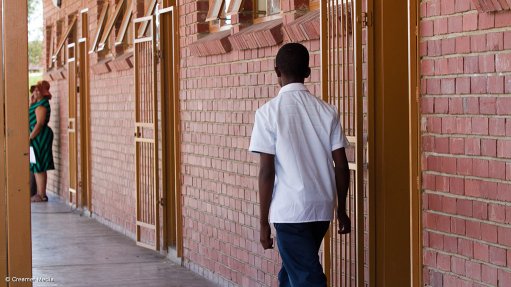
Photo by: Duane Daws
All schools are expected to meet minimum norms and standards for infrastructure by next year, Finance Minister Nhlanhla Nene said in his 2015/16 budget speech in the National Assembly on Wednesday.
"The school infrastructure backlogs programme is allocated R7.4-billion for the replacement of over 500 unsafe or poorly constructed schools, as well as to address water, sanitation and electricity needs," he said.
From May this year, all school building plans would be standardised and the cost of construction controlled by the office of the chief procurement officer.
"Too often, and for too long, we have paid too much for school building projects."
Nene said routine maintenance of school buildings and minor construction work would be decentralised.
This would be accompanied by measures to combat inefficiency and corruption at district and school levels.
Basic Education Minister Angie Motshekga was overseeing a review of staff planning for schools, to ensure pupil-teacher ratios were at appropriate levels.
From January next year, all books delivered to schools would be managed through a centrally negotiated contract.
Education would again get the biggest slice of this year's budgetary pie at R265.7-billion.
The breakdown in spending for the 2015/16 financial year was:
– R191.1-billion for basic education;
– R26.2-billion for university transfers;
– R25.3-billion for skills development and adult education;
– R13.1-billion for education administration; and,
– R10-billion for the National Student Financial Aid Scheme (NSFAS).
Nene said increased spending in the NSFAS would support a further increase in university enrolments and in technical and vocational colleges.
"We are mindful of the pressures of student financing at our higher education institutions," Nene said.
The budget for the scheme was estimated at R11.9-billion in 2017/18, up from R9.2-billion in 2014/15.
According to the 2015 Estimates of National Expenditure, students would be able to apply directly to the scheme and register only once for funding by 2017/18.
This would allow the scheme greater control over the number of students it supported and ensure more students received assistance on time.